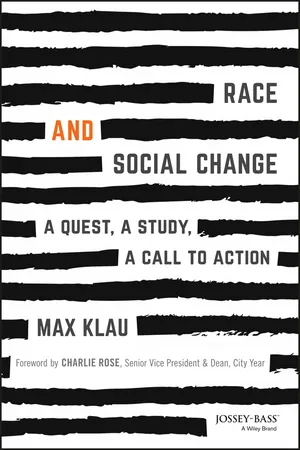Psychology
Obedience
Obedience refers to the act of following the commands or orders of an authority figure. In psychology, it is often studied in the context of social behavior and conformity. Research, such as the famous Milgram experiment, has shown that individuals may exhibit high levels of obedience to authority figures, even when it conflicts with their personal moral beliefs.
Written by Perlego with AI-assistance
Related key terms
5 Key excerpts on "Obedience"
- Susanne C. Knittel, Zachary J. Goldberg(Authors)
- 2019(Publication Date)
- Routledge(Publisher)
Instead, we might be wise to reflect on whether this definition has ever really been adequate. The requirement that the specific social act of an order or command be observed before we can classify something as Obedience seems overly restrictive. In everyday life, when we refer to obeying the law, we are not typically describing situations in which we are under direct orders from an authority figure. Rather, we “obey” by observing social norms that proscribe certain actions. More formally, we might draw on the influential work of the social theorist Michel Foucault (1979), who noted that authority in modern liberal societies is rarely exercised bluntly. Instead, Obedience is elicited through more subtle means and indeed is most effective when people come to regulate their own behaviors. We might, therefore, suggest a revised definition of Obedience as simply submission to the requirements of authority (Gibson 2019b). These requirements might be stated explicitly in the form of an order, but they need not be. Indeed, when we return to the audio recordings of Milgram’s experimental sessions, we find that not only are participants able to resist the experimenter’s increasingly strident demands that they continue, but those participants who do go all the way to the end of the procedure typically do so without the need for the experimenter to use the prods (Gibson 2019a, 2019b). We are thus left with the conclusion that this hugely influential and controversial set of studies does not stand as a demonstration of people’s propensity to follow orders. Rather, it shows us that when participants are obedient, it is not because they have been issued with orders, and when orders are issued participants are able to resist them. The experiments thus can no longer be used to warrant claims about perpetrator behavior arising because of people following orders- eBook - ePub
Great Ideas in Psychology
A Cultural and Historical Introduction
- Fathali Moghaddam(Author)
- 2013(Publication Date)
- Oneworld Publications(Publisher)
Imitation . Obedience involves compliance with orders, whereas conformity involves imitation and the adoption of similar behavior. Military officers issue orders that they do not have to follow themselves but that their subordinates have to comply with, whereas the soldier conforming with a group norm in a group of soldiers does so by imitating other group members.3. Explicitness . Obedience involves compliance with explicit commands; we readily acknowledge acting under orders. But norms are generally implicit and lead to conformity to implied and tacit requirements that are seldom acknowledged.4. Voluntarism . In explaining their behavior, those who obey attribute responsibility to authority figures (“I was ordered to do this”), whereas those who conform typically claim to be doing what they do on a voluntary basis (“I dress the way I like, irrespective of how my group dresses”).THE HISTORICAL AND CULTURAL CONTEXT LEADING TO PSYCHOLOGICAL RESEARCH ON Obedience
There is a continuing and long-running debate about the optimum level of Obedience necessary for the proper functioning of an open society. Much of this discussion, going back several thousand years to Plato, has been concerned with the challenge of how there can be Obedience to authority without that authority becoming corrupt. In more recent history, republics such as France, but most of all the United States, were strongly influenced by the ideas of the Roman scholar Cicero (106–43 BCE ) to introduce a system of checks and balances to control executive power, even or particularly when the president has popular appeal. Theorists have argued in favor of both the extreme position that “Obedience is essential and must be achieved by cunning” and the position that “Obedience as we know it is unnecessary.” Regarding “Obedience as essential,” Niccolo Machiavelli (1469–1527) explored, in The Prince - eBook - ePub
Stanley Milgram
Understanding Obedience and its Implications
- Peter Lunt(Author)
- 2009(Publication Date)
- Bloomsbury Academic(Publisher)
Milgram starts his discussion with a paradox which he claims is as old as western civilisation; that authority and Obedience are necessary for the cohesion and smooth running of society and therefore of tremendous benefit. At the same time, however, under the influence of authority individuals can perform acts that they would otherwise regard as wrong, immoral or evil. This is an important starting point because it suggests that Obedience as a basic function of complex societies can be used for both positive and negative ends, and is therefore value neutral. Although Milgram is interested in sociological and political questions, he places the individual at the centre of his enquiry. When an authority figure asks an individual to do something they disagree with there is a conflict between the individual and society. Milgram sees Obedience to authority through the eyes of a social psychologist who is concerned with the relationship between individuals and society.For Milgram, the dilemma of Obedience resists theoretical explanation and instead requires the disinterested view of the scientist to explore how people deal with the moral dilemma presented by Obedience in real social situations. If a person is to follow their conscience rather than obey orders then they will have to disobey authority. Milgram designed an experiment in which an authority ordered individuals to do something that they disagreed with in order to examine the circumstances in which they will accept or resist authority. He was convinced that Obedience had positive as well as negative consequences and assumed that individuals would value it, so that choosing not to obey and resisting authority would come at a psychological cost. Milgram assumed that his participants, ordinary citizens living in post-war America had unexceptional private lives, bringing up families, holding down jobs, getting on with their neighbours or not. However, these individuals left the privacy of their homes to travel to an institutional setting so although Milgram sampled from a ‘normal’ population the participants showed up in their public rather than their private identities. Milgram was relying on the idea that his participants would by default conform to norms of appropriate public behaviour which would include not harming fellow citizens with whom they had no quarrel or personal conflict. - eBook - ePub
Training for Performance
A meta-disciplinary account
- John Matthews(Author)
- 2011(Publication Date)
- Methuen Drama(Publisher)
22 It is the conditions of interrelation and interaction that bring about deindividuation in this sense of social identity, and these conditions are, in this instance, based on theatrically prescribed roles; this is to say that, at a certain level, each volunteer performs a role as ‘volunteer’ and the particular duties attendant upon the performance of this role, a performance which in turn enables the performance of the other roles within the group. Thus the reason that Milgram’s volunteers ‘obey’ is because the social unit constructed in/by the experiment as it appeared to them (comprised of volunteer, scientist and other volunteer) requires that each member ‘play’ according to their role in order for the whole to function and to be maintained. It is not so much a case of the volunteer overriding their moral codes or acquiescing to authority as of playing the role of volunteer, whose performance is necessary for the whole unit to act collectively and perform the experiment.It is evident that this form of Obedience in social identity deindividuation is quite different to the Obedience one might encounter in conflict situations, in the military, or even at work. In these contexts, ‘Obedience’ affected by coercion, punishment or physical harm is far closer to the realm of ‘discipline’ Foucault identifies in penal institutions that impose upon the bodies of involuntary prisoners. Obedience, in the sense invoked by deindividuation, arises in contexts that are precisely defined by the voluntary participation of individuals and by the absence of the explicit threat of punishment in the case of a failure to obey.Obedience, or ‘listening to others’
As I have begun to suggest above, ‘Obedience’ is a troublesome word to use because of the range of connotations and associations that situate ‘Obedience’ in a context of discipline and coercion. Obedience would appear to be associated with ethically justifiable coercive action only in the case of children or animals, whose behaviour is determined by Obedience to their guardians. A certain sense of ‘Obedience’ is of course tied in with categories of personal choice and the tension between voluntary participation and coercion, categories that are configured in the cases of children, and particularly animals, in contradistinction to adults. For this reason, attitudes about the Obedience of animals to humans often exhibit an underlying commitment to a benevolent covenant between ‘man’ and ‘beast’. Examples can be found in discourse on animal training. Steve Lindsay, in his Handbook of Applied Dog Behaviour and Training , suggests that ‘a coevolutionary process… appears to have prepared a biological bond between people and dogs… [and] the training process helps to perfect and intensify this evolutionary bond’.23 Despite the unsubstantiated claims to a coevolutionary process, within the framework established by such an idea Lindsay is able to assert that ‘training serves the obligatory role of improving canine life… [because] by learning to follow rules happily and obediently, social conflicts are reduced and a leader–follower bond based on affection, communication and trust is allowed to form’.24 - eBook - ePub
Race and Social Change
A Quest, A Study, A Call to Action
- Max Klau(Author)
- 2017(Publication Date)
- Jossey-Bass(Publisher)
The experimenter responds quickly and decisively. “I'll take responsibility. It is absolutely essential that you continue.”Despite his obvious misgivings, the man continues to ask questions and deliver shocks to the increasingly agitated man off-screen. Eventually, the screams and protests stop, and the shocks bring no response. For all we know, the man off-screen is now either unconscious or dead. But the experimenter continues to insist that the man must continue, and so he does…all the way to the last, highest-voltage switch on the machine.The Individual Level of Analysis: Obedience and Conformity
The scene is from a famous (or more accurately, infamous) series of experiments conducted at Yale University in the 1950s by social psychologist Stanley Milgram. The details of the experimental design are explained in the next section, but for now the important point to note is that Milgram's authority experiments were among the first in a series of provocative social psychology experiments that have become classics in the field. Many of these studies have become widely known far beyond the boundaries of social psychology researchers because they compel us to confront the darker shadows of some of the most basic and universal dimensions of human behavior. Because the Separation Exercise that is the focus of this book builds on and extends this tradition in important ways, a review of these classic experiments provides an invaluable context for the insights and perspective that we'll encounter in the pages ahead.Milgram's Obedience Experiments
Social psychologist Stanley Milgram conducted his famous experiments exploring Obedience to authority at Yale University in the 1950s. Deeply disturbed by the Nazi genocide of Jews during the recently completed Second World War, Milgram (1974) wanted to understand how ordinary individuals could participate in mass cruelty and violence:
Learn about this page
Index pages curate the most relevant extracts from our library of academic textbooks. They’ve been created using an in-house natural language model (NLM), each adding context and meaning to key research topics.




